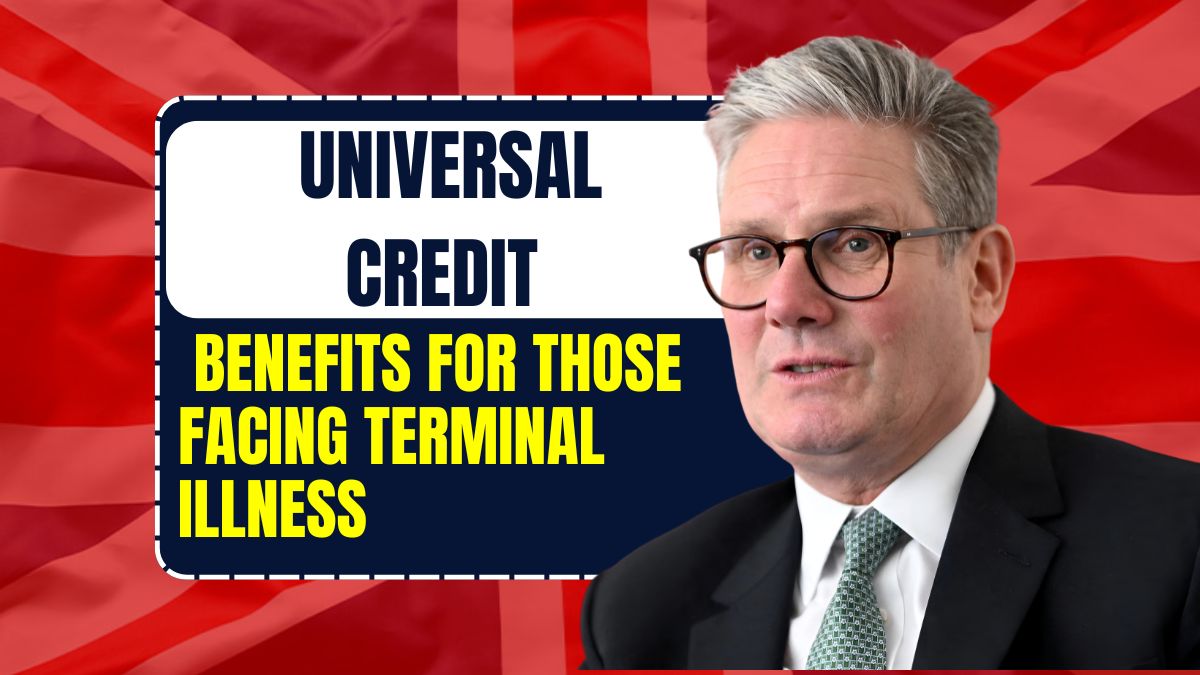When a person is at the end of his life, he needs peace, dignity and family the most. At such a time, any kind of government complexities, paperwork and financial worries eat up the precious time of his life which he could have spent with his loved ones. But a government scheme called Universal Credit in the United Kingdom has understood this pain – and has created a simple, compassionate and powerful system especially for people who are suffering from serious illness and whose life is now limited.
In this article, let us understand in detail how this special support system of Universal Credit provides a sigh of relief in this difficult phase of life.
It is not just a scheme, it is a promise
This special support of Universal Credit is not just a policy of any document. It is a promise of a society that stands with its most vulnerable people. It shows that the value of a person is not only measured by the work he has done, but also by the life he has lived and the dignity of his last moments.
Previously, this assistance was only given to those whose life expectancy was stated to be six months or less. But years of struggle and hard work by charity organisations changed this rule.
New rule: Limit now 12 months, not 6 months
Now, if a doctor believes that a person may die within the next 12 months, he can get this special assistance. This change was implemented in April 2022 for Universal Credit and ESA, and in April 2023 for PIP, DLA and Attendance Allowance. This decision has brought relief to thousands of people who were previously left out of this scope.
Financial help: more immediately
A person receiving Universal Credit under Terminal Illness receives the highest health support element called LCWRA (Limited Capability for Work and Work-Related Activity).
For the year 2024/2025, this amount is £423.27 per month,
which is given in addition to the normal allowance. This amount is very useful for household expenses, medical, care or travel expenses.
And the special thing – this amount starts getting received from the beginning of the claim, whereas under normal circumstances one has to wait for three months.

Fastening claim process: No waiting
Universal Credit claim for terminal illness is completely fast-tracked. Usually in other health conditions, the person has to undergo ‘Work Capability Assessment’ and it can take months to get the money.
- But under SRTI (Special Rules for Terminal Illness):
- Three months of waiting are over
- Help without any interview
- No need for physical or mental assessment
This means that where every moment is precious, the person does not have to clash with the government system.
SR1 Form: The key to the claim
The SR1 form is required to receive this assistance. It is filled out by a doctor, specialist nurse or medical consultant. This form confirms that the person has a serious illness and has a life expectancy of less than 12 months.
SR1 was previously known as DS1500 and this form acts as a “golden ticket” that puts the claim process straight on track.
Relief from Claimant Commitment and WCA
The biggest relief for terminally ill people is that they neither have to make a Claimant Commitment, nor undergo a Work Capability Assessment (WCA).
These were the two major hurdles:
- Claimant Commitment: This is a promise in which the person has to pledge to find a job or prepare himself for work.
- Work Capability Assessment (WCA): It involves filling out long forms, giving interviews and medical assessment.
With SRTI you don’t have to do either. The government trusts the doctor’s word – as it should.
The right to live with dignity
This support doesn’t just give someone financial support, it gives them the right to live with dignity in their final years. It says:
Now you only need to think about your health, and your family and enjoy the time you have and we will take care of the remaining part.
- The How to get help: a step-by-step guide
- Contact your doctor and ask for an SR1 form.
- Apply for Universal Credit online or phone the DWP.
- Enclose the SR1 form with your application.
- Your claim is accelerated and assistance will become effective straight away.
You can turn toward charities like Marie Curie or Macmillan whenever you need some help.
Authoritative resources and prescriptions
The most current, and truthful information is the one hosted by the UK Government (GOV.UK). There you will get forms, guidelines and contact numbers that will enable you to apply without trouble.
Last-minute relief: A humane step
This Special Support policy from Universal Credit shows how modern society values the dignity and humanity of its people. When a person is at the end of his life, what he needs most is support — mental, emotional and financial.
This policy not only provides some relief to the person but also to his entire family — it is a human feeling, not a “system”.
Conclusion
When governments add compassion to policies, the system doesn’t just get better — it gets humane. Universal Credit’s Special Support policy
FAQs
1. What is Universal Credit’s special support for terminally ill individuals?
A. Universal Credit offers fast-tracked and enhanced financial support to people diagnosed with a terminal illness expected to result in death within 12 months, as per medical opinion.
2. Who qualifies for Universal Credit under the Special Rules for Terminal Illness (SRTI)?
A. Anyone with a progressive disease and a reasonable medical expectation of death within the next 12 months can qualify under SRTI.
3. How much extra financial support is provided?
A. As of the 2024/2025 tax year, eligible claimants receive an additional £423.27 per month (LCWRA element) on top of the standard Universal Credit allowance.
4. Is the application process different under SRTI?
A. Yes, the process is simplified. Claims are fast-tracked, and no work capability assessment or job-seeking requirements are needed.
5. What medical documentation is needed to apply?
A. Applicants need an SR1 form, a medical report filled out by a doctor, specialist nurse, or healthcare professional confirming the terminal diagnosis.

